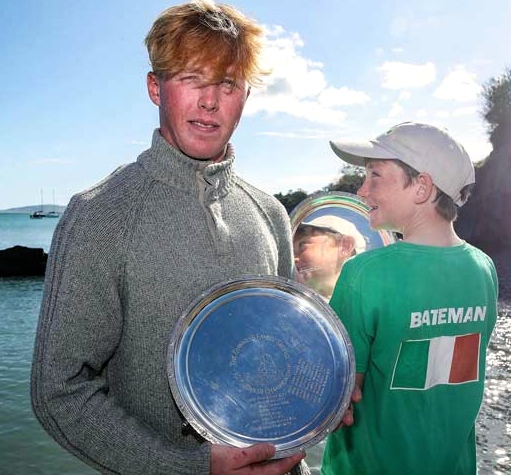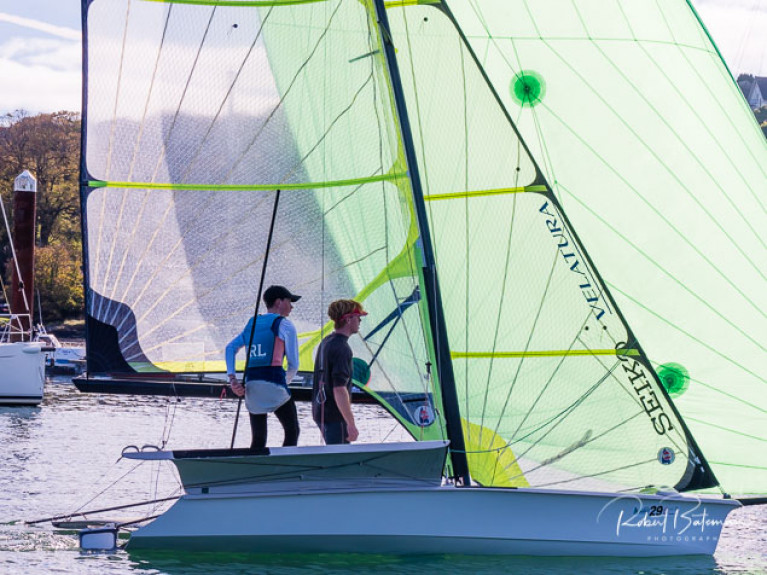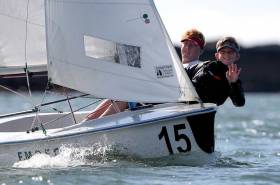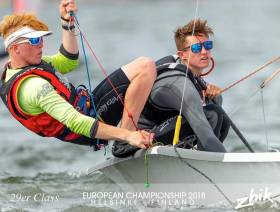Displaying items by tag: Chris Bateman
Former junior champion Chris Bateman is a top sailor who leads by example and inspiration.
Having decided that the ever-young Fireball is the answer for junior and adult dinghy sailors who don’t want to go down the cheque-book route to racing, he has beavered away re-building the formerly popular and economically attractive class both in practical restoration, and in actively sailing the boat to championship level.
The result has been a favourable and supportive response from Fireball sailors new and “old”, and a genuine re-invigoration of the class spreading outwards from Cork.
Optimist Ace James Dwyer Matthews Takes a Tack in an Olympic 49er
Despite Royal Cork Yacht Club's Seafra Guilfoyle's super efforts at the sharp end of Ryan Seaton's 49er campaign for Tokyo 2021 next year, there's been little in the way of Olympic skiff sailing going on in Guilfoyle's home port for the past two seasons.
These fast and tricky skiffs are a handful for most and this has put them on a downward spiral in Cork Harbour.
So it was interesting to spot Optimist and Laser 4.7 ace James Dwyer Matthews of RCYC trying out a 49er (one of two in active use), with Chris Bateman of Monkstown Bay as his crew.
Guilfoyle, a 2014 world youth silver medalist, meanwhile, continues his campaign for selection in the 49er and is vying with a Dublin crew to win a single Irish berth against stiff competition for one of the final slots available for Japan.
Chris Bateman of Cork has been cutting a swathe through the dinghy sailing scene in Ireland at both junior and open level in a number of classes for some time now, and as he turned 18 on September 23rd, his 2019 national title in the RS 200s provided a final opportunity to put his stamp on the All-Ireland Junior Championship. But as it was to be raced in the relatively small TR 3.6s in Schull, his size meant that - to be competitive – he had to find a pint-sized crew, and the hand of destiny fell on his youngest brother, 9-year-old Olin.
The pair of them raced a truly masterful championship. But it’s not easy being the little guy crewing for the hyper-talented big guy, so we reckon that September’s Junior Sailor of the Month award should be shared between Chris and Olin.
 The Junior Champion 2019 – Chris Bateman turned 18 a week ago, his brother Olin is just nine. Photo: Irish Sailing/INPHO/Bryan Keane
The Junior Champion 2019 – Chris Bateman turned 18 a week ago, his brother Olin is just nine. Photo: Irish Sailing/INPHO/Bryan Keane
Kohl & Bateman’s Strong Showing At 29er Europeans
#29er - Atlee Kohl and Chris Bateman followed their overall victory at last month’s 29er Nationals with a strong performance at the class Europeans in Helsinki this past week.
The Royal Cork youth duo, and the only Irish contingent at the Helsingfors Segelklubb in Finland’s capital, ranked 17th in the Gold fleet after a week of racing which wraps up today, Sunday 12 August.

































































